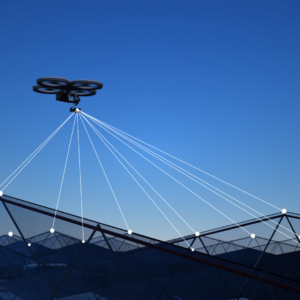Introduction:
In recent years, drones have skyrocketed in popularity and applications. From aerial photography to package delivery, drones offer unprecedented opportunities. However, with these technological advances also come serious concerns about privacy and data protection. In particular, the European Union’s General Data Protection Regulation (GDPR) raises new challenges for the use of drones. Let’s take a closer look at the dangers these flying devices pose in terms of privacy.

1. Intrusion into personal privacy
Drones equipped with cameras can easily infringe on the privacy of individuals. Whether capturing images of private property, backyards or even through windows of homes, the possibility of unwanted intrusion into someone’s privacy is real.
2. Unauthorized data collection and storage.
Drones can collect vast amounts of data during their flights, ranging from imagery to location data. There is a risk that this data could be collected and stored without proper consent, in direct violation of the GDPR. Organizations using drones should be transparent about what data they collect, how they use it and how long they keep it.
3. Inadequate data security.
Drones are susceptible to hacking, allowing the data they collect to fall into the wrong hands. The GDPR places responsibility on organizations to take appropriate technical and organizational measures to ensure the security of personal data. Failure to comply can result in serious fines!
4. Identifiable information in imagery
Even if drones legitimately collect imagery, there is a risk of capturing identifiable information, such as faces, license plates or other personal characteristics. Organizations should be careful when using such imagery and ensure they comply with GDPR standards regarding the processing of personal data.
5. Insufficient knowledge and awareness
Another danger lies in the lack of awareness among drone users about GDPR requirements. It is essential that organizations deploying drones thoroughly educate their staff on data protection rules and regulations. Ignorance is no excuse and can lead to unintentional violations of the GDPR.
Conclusion
The use of drones undoubtedly offers numerous benefits, but it also presents significant data protection and privacy challenges. Organizations should be aware of the GDPR dangers posed by drones and take proactive measures to safeguard the privacy of individuals. Only through ethical and responsible use of drones can we enjoy the benefits of this emerging technology without compromising the privacy rights of the individual.
Need help? appoint your external DPO here!









